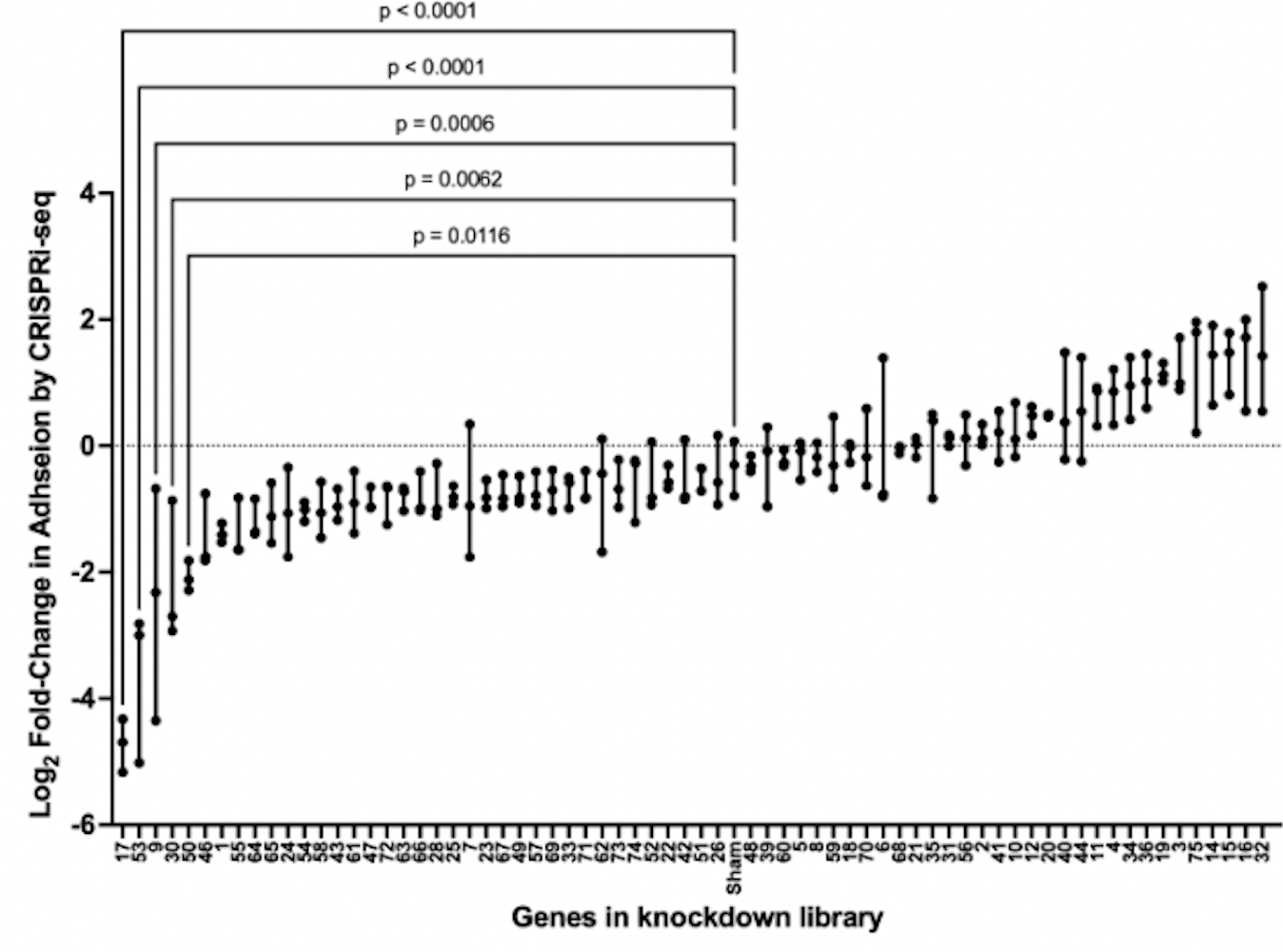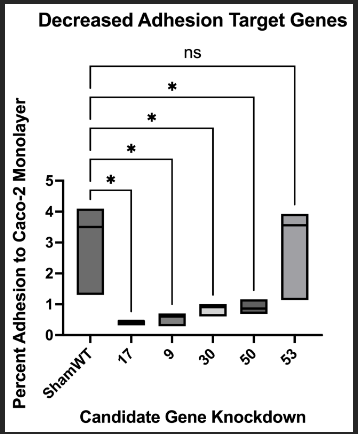Neonatal Infectious Diseases/Immunology 5: Chorioamnionitis and Group B streptococcal infections
Session: Neonatal Infectious Diseases/Immunology 5: Chorioamnionitis and Group B streptococcal infections
089 - A multiplex CRISPR/Cas-based screen of group B Streptococcus surface proteins reveals candidates with roles in neonatal late onset disease pathogenesis
Sunday, April 27, 2025
8:30am - 10:45am HST
Publication Number: 89.3978
Hayley N.. Varela, UPMC, Pittsburgh, PA, United States; Thomas Hooven, University of Pittsburgh School of Medicine, Pittsburgh, PA, United States; Tara M. Randis, University of South Florida, Tampa, FL, United States

Hayley N. Varela, MD (she/her/hers)
Fellow, PGY6
UPMC
Pittsburgh, Pennsylvania, United States
Presenting Author(s)
Background: Group B Streptococcus (GBS) is a leading cause of neonatal sepsis, meningitis, and mortality worldwide. Despite effective screening and antibiotic prophylaxis protocols that have reduced early-onset disease incidence in the U.S., GBS late-onset disease (LOD) rates remain static. Previous studies in rat models revealed that GBS lacking sortase A (SrtA), a chaperone for surface anchored proteins, had decreased intestinal colonization in vivo, indicating that GBS surface proteins are important mediators of adhesion to the intestinal epithelium—a key precursor to neonatal bloodstream invasion in LOD.
Objective: This research tests the hypothesis that conserved GBS surface proteins influence intestinal epithelial adhesion, positing their role in LOD.
Design/Methods: In cultured Caco-2 enterocyte monocyte layers and a juvenile mouse intestinal colonization model, we demonstrated that ΔsrtA mutant GBS have an adhesion defect, confirming the importance of GBS surface proteins in intestinal adhesion. Next, we used a modified CRISPR/Cas system, called CRISPR interference (CRISPRi), to individually repress 75 conserved GBS surface protein genes. We then used our knockdown library in a novel multiplex fitness assay (CRISPRi-Seq) to test GBS library strains for differential adhesion to Caco-2 cells. Candidate knockdown strains with significant adhesion defects in the multiplex assay were individually validated in the Caco-2 adhesion model.
Results: The ΔsrtA mutant strain of GBS showed significantly decreased adhesion in the Caco-2 and juvenile mouse models compared to wild type (WT, p< 0.005, Student’s T-test, Fig. 1). CRISPRi-seq with the complete surface protein knockdown library identified five gene knockdowns associated with decreased adhesion (Fig. 2, p< 0.05, one-way ANOVA). Validation experiments verified decreased adhesion in four of these knockdowns compared to the control (sham, p< 0.05, one-way ANOVA, Fig. 3). The four promising candidate genes encode an adhesin (gene 17), a serine hydrolase (9), a peptidylprolyl isomerase (30), and a pilus subunit (50). To further validate our screen results, our group is currently creating formal GBS gene deletion mutants lacking these surface proteins and creating Lactococcus lactis expression plasmid gene knock-ins to assess for altered adherence to Caco-2 cells.
Conclusion(s): This study has identified four surface-anchored surface proteins that promote GBS adhesion to cultured intestinal epithelial cells, suggesting their roles in a key initial step of late-onset sepsis pathogenesis.
Figure 1
.png) GBS surface proteins affect intestinal epithelial interactions. Adhesion to Caco-2 cells (top) was reduced in ΔsrtA GBS knockouts as was persistence in a mouse model of neonatal intestinal colonization (bottom). **p < 0.01, ***p < 0.005, ****p < 0.001, T-test.
GBS surface proteins affect intestinal epithelial interactions. Adhesion to Caco-2 cells (top) was reduced in ΔsrtA GBS knockouts as was persistence in a mouse model of neonatal intestinal colonization (bottom). **p < 0.01, ***p < 0.005, ****p < 0.001, T-test.Figure 2
 CRISPRi-seq with the complete surface protein knockdown library identified five gene knockdowns associated with decreased adhesion (p < 0.05, one-way ANOVA). The x-axis represents different genes targeted in the knockdown library, and the y-axis shows the log2 fold-change in adhesion compared to a sham-targeted, isogenic GBS control.
CRISPRi-seq with the complete surface protein knockdown library identified five gene knockdowns associated with decreased adhesion (p < 0.05, one-way ANOVA). The x-axis represents different genes targeted in the knockdown library, and the y-axis shows the log2 fold-change in adhesion compared to a sham-targeted, isogenic GBS control. Figure 3
 Validation experiments with individual CRISPRi knockdown GBS strains and an isogenic sham-targeted (ShamWT) control strain revealed four gene candidates necessary for the adhesion of GBS to Caco-2 epithelial cells (p < 0.05, one-way ANOVA).
Validation experiments with individual CRISPRi knockdown GBS strains and an isogenic sham-targeted (ShamWT) control strain revealed four gene candidates necessary for the adhesion of GBS to Caco-2 epithelial cells (p < 0.05, one-way ANOVA). 
